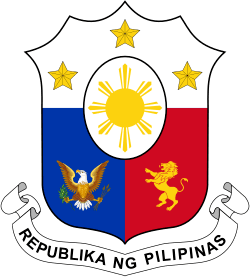Bicolanos
| Total population | |
|---|---|
|
5.9 million (6.9% of the Philippine population) | |
| Regions with significant populations | |
|
(Bicol Region, Quezon province, Metro Manila) and Worldwide | |
| Languages | |
| Bikol, Tagalog, Masbateño, Waray, English | |
| Religion | |
| Predominantly Roman Catholicism with some Protestants, and Islam | |
| Related ethnic groups | |
| Filipinos |
The Bicolanos are the fifth-largest Filipino ethnolinguistic group.[1]
Area

Bicolanos live in the southeastern peninsula of Luzon, now containing the provinces of Albay, Camarines Sur, Camarines Norte, Catanduanes, Sorsogon and Masbate (although the majority of Masbate's population are Visayans). Many Bicolanos also live in the province of Quezon.
Demographics
The Bicolanos number about 5,907,000. They are descended from Austronesian-speaking immigrants who came from southern China during the Iron Age. Many Bicolanos also have Chinese, Arab, and Spanish admixtures. Most of the townsfolk have small traces of each heritage while their language is referred to as Bicol or Bicolano. The Bicolano language is very fragmented, and its dialects are mutually incomprehensible to speakers of other Bicolano dialects. The majority of the Bicolano people are devout Roman Catholics and Catholic Mass is celebrated daily in many churches in the Bicol Region.
Culture & Traits
The Bicolano cuisine is primarily noted for the prominent use of chili peppers and gata (coconut milk) in its food. A classic example is the gulay na lada, known outside the region as Bicol Express, a well-loved dish using siling labuyo (native small chillies) and the aforementioned gata.
Like their other neighboring regions, Bicolanas are also expected to lend a hand in household work. They are even anticipated to offer assistance after being married. On the other hand, Bicolano men are expected to assume the role of becoming the primary source of income and financial support of his family.
References
- ↑ "Archived copy". Archived from the original on January 11, 2010. Retrieved January 27, 2014.
